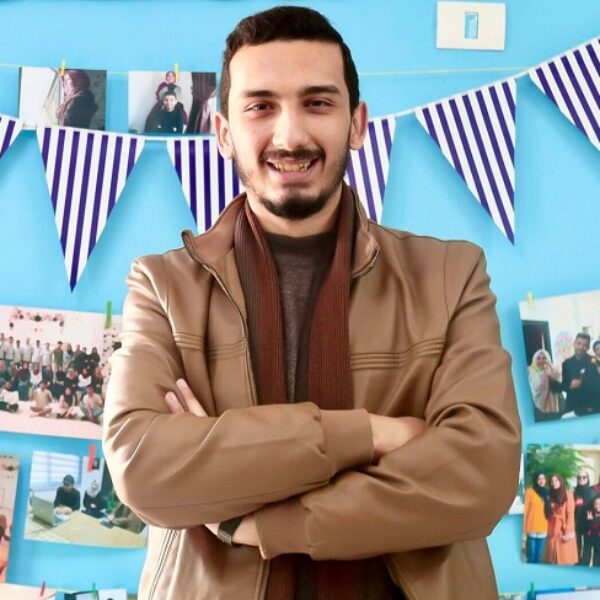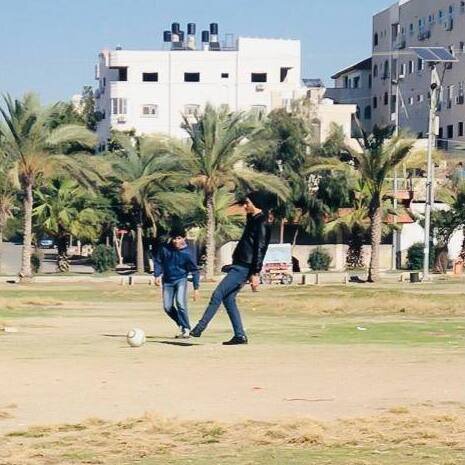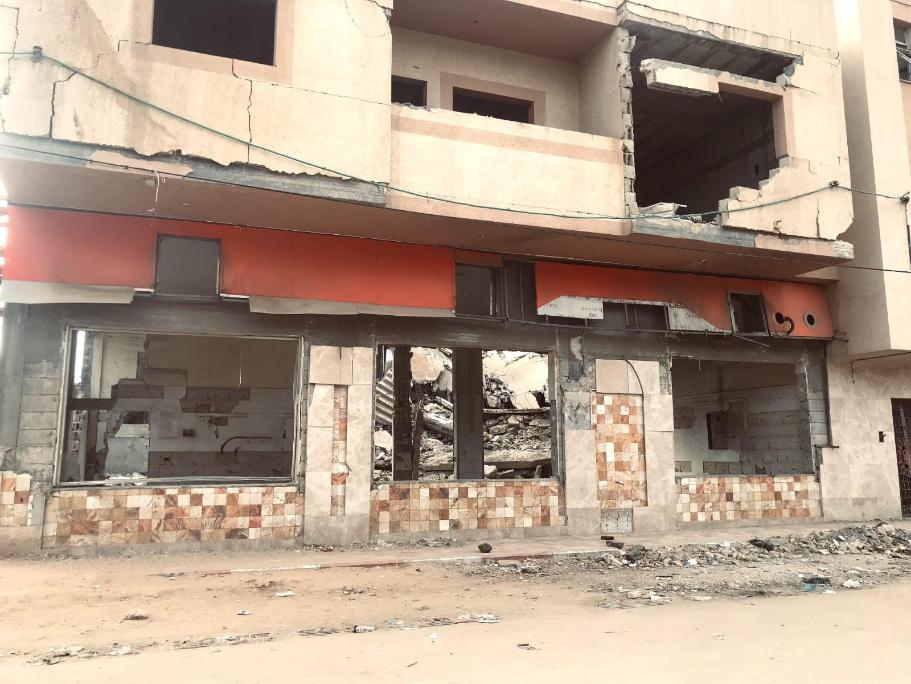I recently went out for a walk to freshen my soul after an exhausting day at work as an English instructor. I find walking in my city special. There are so many faces—some young and still looking like they are about to leap into the future with excitement, some looking ancient (probably beyond their actual years) and resigned. So many approaches to religion—some women wearing a full face covering and others with their hair flowing freely. So many “stations” in life—some looking fashionable and others wearing worn-out, secondhand clothes.
There are many contradictions; we are not the monolithic “Gaza Palestinian” label the world wants to attach to us. Some people, those who don’t live here, see Gaza City as a hotbed of militancy and terrorism. But those who manage to visit see an ancient culture and an insistence on living.
Amidst this chaos of perceptions rises a massive fig tree, so big it obscures a third of the school next to the home of a widow, Um Ahmed, who I met during my wanderings. The tree is 70 years old she tells me—almost older than the Israeli occupation of Palestine. It has witnessed both the Nakba (“catastrophe”) and our survival firsthand.
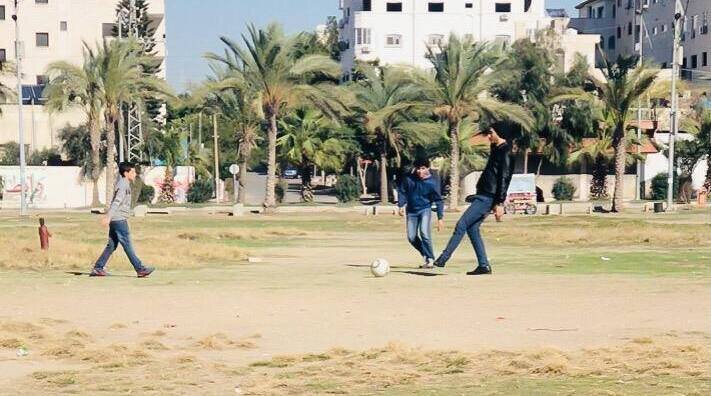
Children played football in the street until their mothers called them in to do their homework. I smelled the distinctive fragrance of mana'ish, bread baked with thyme, wafting through the windows.
Memories of my own childhood flooded my head. I love football. I celebrated every victory of one of my favorite foreign teams in a restaurant or café, crowding in with everyone else eager for any reason to celebrate. Each time our favored team won, my friends and I shared exciting moments and feasted on chocolate mousse, fruit pies, chocolate crepes, banana splits and milkshakes.
Another memory: My friends and I are finishing our classes for the day and watching the girls from the nearby prep school walk by, swinging their books with confidence, dazzling us with their smiles and sending us into confusion and guilt when they looked at us while pretending not to. We kept our eyes on them until they disappeared.
Everything has changed since my early school days, when Israeli settlers and the soldiers who hovered around them were ever present. Although Israel continues to control our borders, air space and sea, we can breathe a little easier; we are masters of our own streets. And to me, the scent of felafel and hummus at dinner time, charcoal kebab fires and even the sweat of bodies packed together is the smell of life, love, dreams, and ambitions.
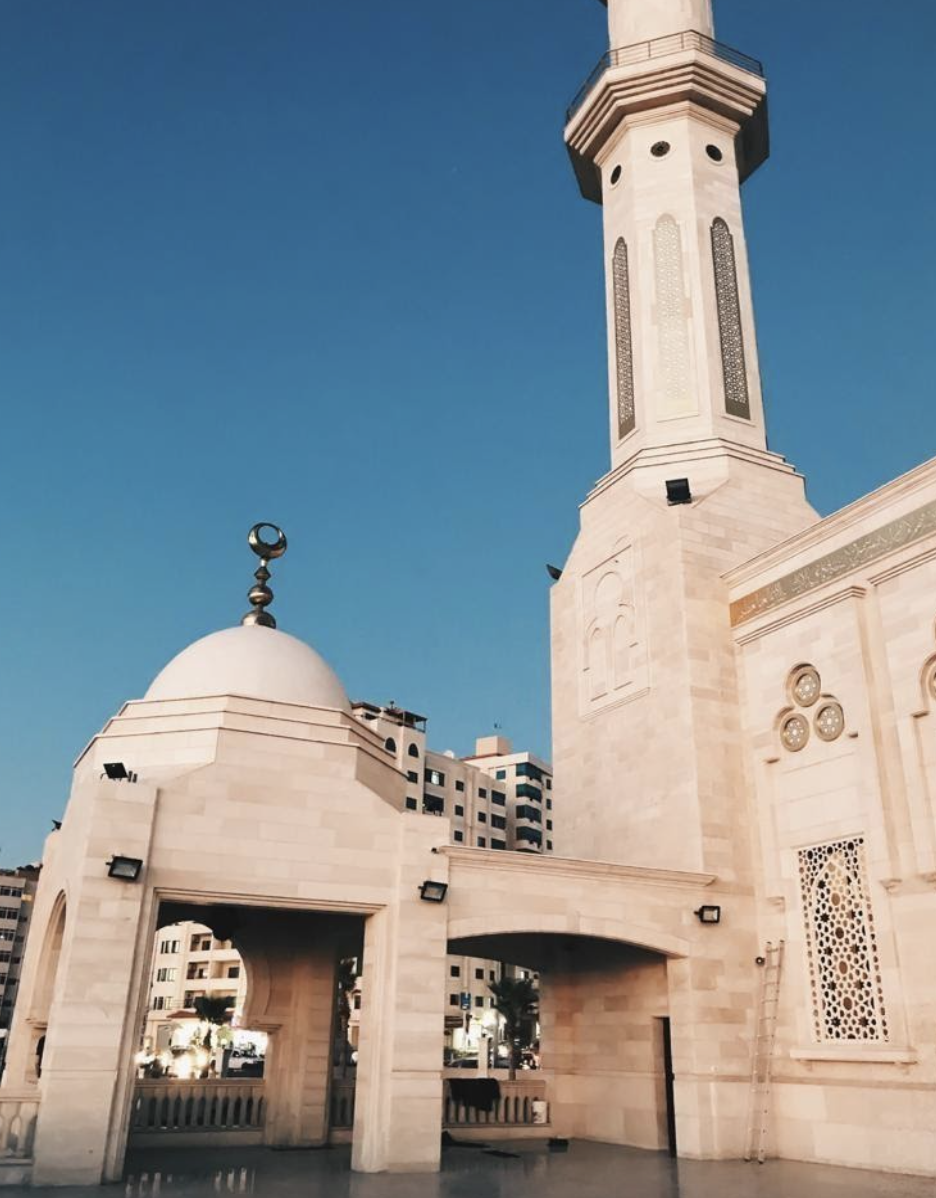
When my walk took me through the Old City of Gaza, I reveled in the sense of history. I must confess that I don’t know a lot about their origins, but I do know that the oldest of the buildings, the Great Mosque, dates to the 7th century. Our history is all about a struggle to survive, just as it is today, which is why we cannot separate politics from life.
As I continued walking, I strolled by a coffee shop whose owner is widely known because of his distinctive blends. I have grown to love coffee, so I bought a strong, black cup, then kept on. I was surrounded by tiny shops with colorful advertising slogans, dessert stalls and the sad drone of the evening news on the radio. Among the top stories of the afternoon was the shooting by Israeli soldiers of a farmer, a father of four, while he was planting his land with citrus trees near the border; apparently, he had ventured too close to the wall for the guards’ comfort. Yet it was the farmer’s land, and the most fertile acres are found by the wall.
The other top news was happier: Some students who had finally managed to pass through all the checkpoints to start a new chapter in life with studying abroad on scholarship. There are so many barriers facing young people who dream of studying outside of Gaza (including me). First, we must earn a full scholarship; we cannot afford any of the expenses. Then we have to persuade the other country to give us a visa; too many governments discriminate against Palestinians. And finally, we must obtain permission to leave and do it safely. But for these students, their dream of seeing the world outside had finally come true!
Later, I saw an old, wrinkle-faced man sitting in front of his shoemaking shop; he was clearly lost in his thoughts. On a whim, I walked over and sat down with him. He greeted me warmly, almost as if he wanted to hug me. This man must have been waiting for someone, anyone, who would listen to him and to whom he could vent.
"You see these kids?" he asked me, gesturing to children playing in the street nearby. He answered without waiting for a reply: "None of the outside world's kids have been raised under similar tough times like the way these kids have." The man, a father of six named Abu Ali, coughed continuously while he spoke, a cigarette lit between his fingers. "Their families always complain about their heavy responsibilities; they can barely feed or educate or clothe them. They're right! There is money but in the hands of our officials.”
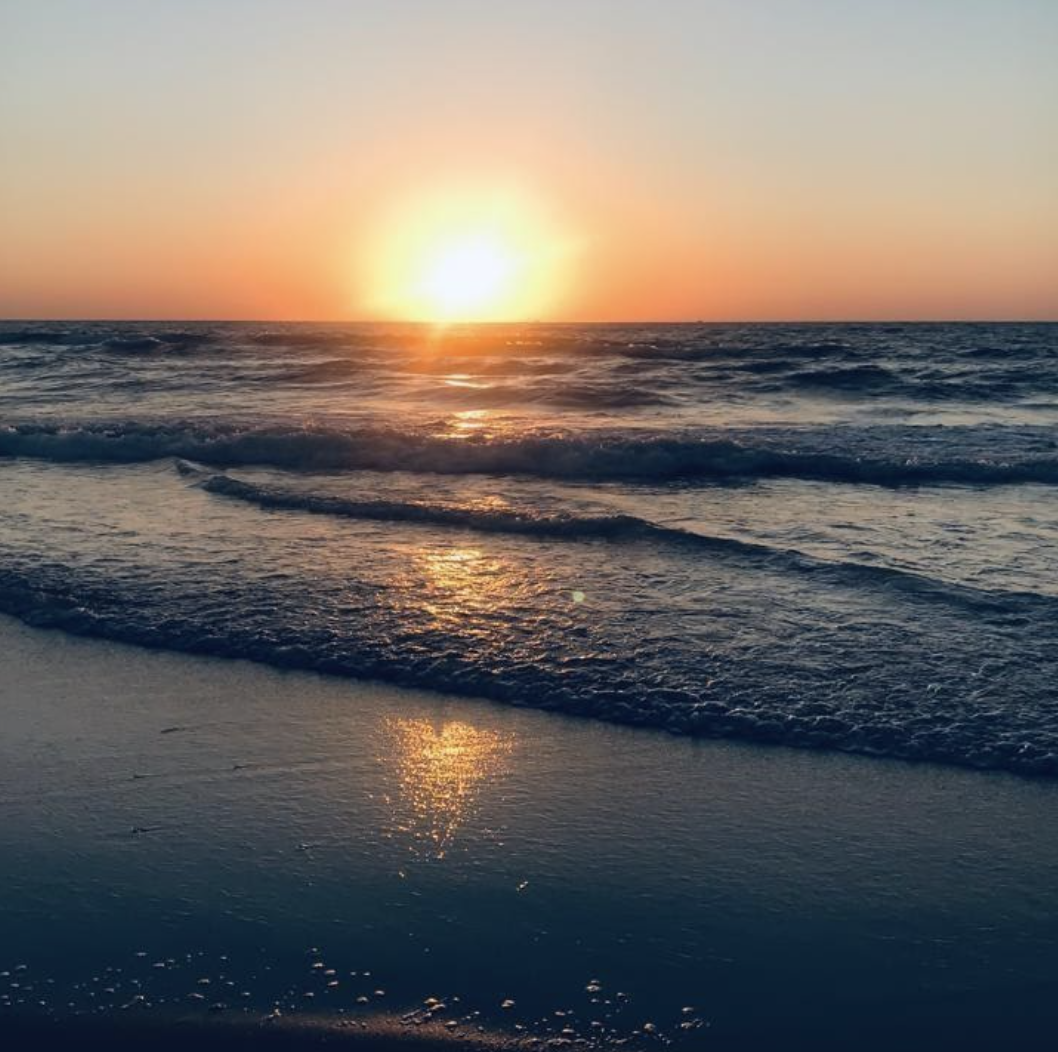
I attempted to insert a positive note: “Isn’t there a possibility of a different life, different possibilities, a different future?" I suggested.
"Future?” he responded, as if adding a spoonful of despair to my coffee. “The bullet that takes their life will come before their chance to liberate their lands, homes and villages."
Abu Ali then turned his ire on the local government: "Our officials fly around the world with our money, aiming to make the world pity and sympathize with us. But as Palestinians, we don’t want anyone to pity us; rather, we want to be treated with humanity, justice, and liberty."
He switched course yet again: "Are you in college?" Without giving me any time to answer, he continued: "I work almost the whole day at my shoe shop, and I can barely afford the school transportation cost for my sons and daughters. Education here costs hundreds if not thousands of dollars per semester." He sighed. I was moved by his monologue. I gave up on trying to answer and prayed for him as well as for me.
The sun was setting as I left. I felt exhausted. I waved down a taxi and got in. In Gaza, we are burdened with so much hardship. Yet, as the sun blazed in a last fit of orange and red glory, I could not deny the beauty. We must never stop appreciating that, and we must always dare to dream.

